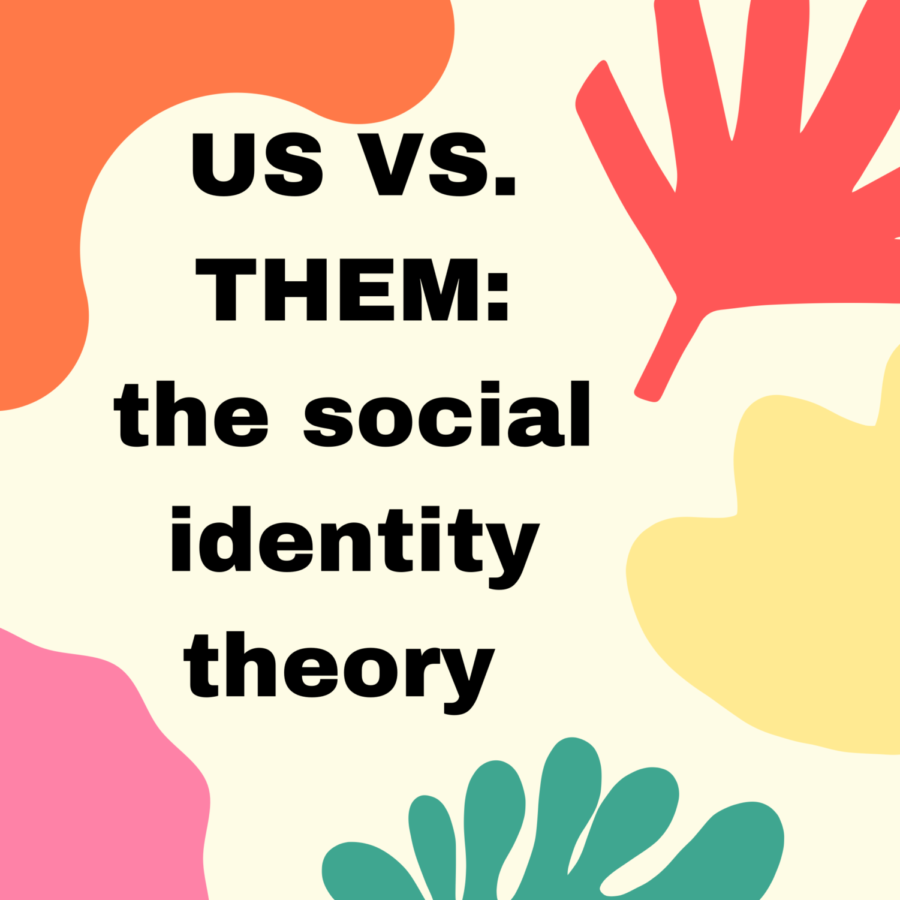Us vs. Them
Our problem today lies in emphasizing the “us” over the “them.”
The social identity theory deals with the parts of your identity that create an in-group and an out-group.
There’s been a shift in the world. Since its creation, social media has been available as a platform for people to share their ideas and beliefs, but recent events like January 6’s Capitol storming and the numerous police brutality incidents have sparked people of all ages to finally start taking advantage of their platforms, no matter how big or small it is. The world is slowly becoming more and more political.
Seeing people’s Instagram stories filled with political activism infographics on how to help stop the spread of Asian-American hate and how to support the Black Lives Matter and Me Too movements has sparked me to wonder: where do my political beliefs come from? What influenced them?
Over the summer, I took a course online at Vanderbilt University called Introduction to Public Policy. One particular lesson stood out to me because I felt it gave me an answer to my question: the social identity theory. The theory can explain what influences my political beliefs.
The social identity theory deals with the parts of your identity that create an in-group and an out-group. An in-group is a group you identify with, while an out-group is one who you don’t. More simply, the in-group is the “us,” and the out-group is the “them.” You are more likely to favor policies that benefit the in-group over the out-group. The theory states that the strength of these group relations can have a major influence on personal belief.
In class, we talked about the five factors that make these “group memberships” more or less political:
- Clear group membership: Can someone place you in the group just by looking at you?
- Permanence: Will you always be a part of this group?
- Relative access to/time spent with the group compared to others: How often do you spend time with this group? Do you spend time with any other groups, or are you solely limited here?
- Perception of threat to the group: Do you feel threatened just because you are a part of this group?
- Perception of shared group interests and fates: Do you share morals and values with other members of this group?
The stronger the connection you have with each of these factors, the more influence the group will have on your personal beliefs.
We were asked to write down five pieces that make up our identity and then rank them one to five (one being the lowest, five being the highest) on each of the five factors listed above. The five pieces I chose as a part of my identity were female, white, Jewish, student, and suburban. When I totaled the scores up, my Judaism scored the highest with a 21 out of 25.
Clear group membership was ranked a 4 out of 5. Even though it’s hard to identify someone’s religion just by looking at them, my name, Leah (pronounced lay-uh) Snyderman, is historically Jewish. Leah comes from the Torah and any last name with “man” in it is often of Jewish descent. I gave a 5 to permanence because it’s a part of my heritage, and I don’t see myself changing such an important part of me. I spend a good amount of time with other Jews, but I have lots of friends outside my religion. Relative access to/time with the group was ranked a 3. Perception of threat to the group is a 5. The Jewish people have been targeted since the beginning of time, and I have been in many situations where I felt the need to hide my Star of David necklace. The final factor, perception of shared interests and fates with the group, was ranked a 4. Because we have the same core beliefs, the Jewish people tend to stick together on certain policies.
Since my Judaism has such a strong influence on me, it shapes most of my decisions and views on different political issues. The core values of Judaism line up with my morals and priorities in life, which directly translate to my political views and social identity.
People tend to favor policies benefiting themselves. As a woman, I support the Equal Rights Amendment and am a firm believer in “My Body, My Choice.” As a Jew, I support the First Amendment right to religious freedom and the existence of Israel as a Jewish state.
My in-group is the Jewish people. Anyone who is not Jewish is the out-group. But just because someone is in the out-group doesn’t mean I can’t support policies benefiting them. As a firm believer in equality, I am a proud ally to the Black Lives Matter movement. I want to help educate others on the acts of hatred towards Asian-Americans in order to put an end to them. I’m committed to strongly supporting LGBTQIA+ rights because love really is just love.
You need to be able to find a balance with your in-group and out-group. There is danger in only thinking about the in-group and never the out-group.
I think this is where our problem lies today.
There is such a political divide in the United States right now over what feels like every single issue. We are putting too much emphasis on the in-group and out-group. By referring to the out-group as “them,” we divide ourselves even more.
You can’t be afraid to reach across your “us.” Sometimes, the “them” can be even more beneficial to you than your “us” is; maybe you’ll even find a new “us” amongst your “them.”
We won’t be truly united until we realize we are all part of the same in-group, the same “us”: the human race.



